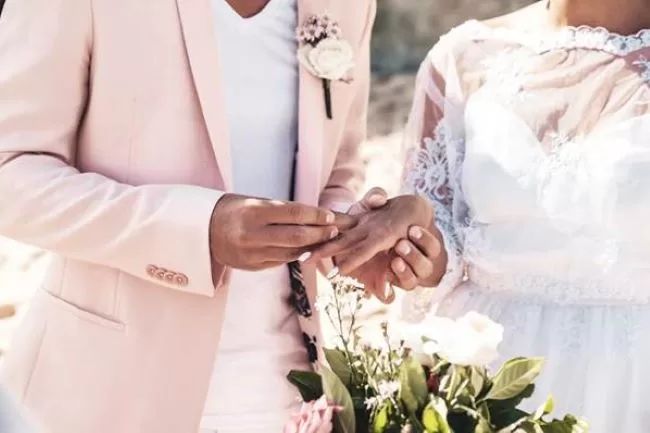A bride’s guide to budgeting a wedding
Getting married in South Africa can be expensive. Accurate numbers are hard to come by, but planners suggest weddings can range from R70 000 to R80 000 for between 80 and 100 guests, which can escalate to R200 000.

Today many couples need or want to carry or contribute to the costs. There are many reasons: historical customs are changing, couples don’t want to put undue pressure on their families or they prefer to be independent and make all their own decisions.
Whatever the reasons, peak wedding season in South Africa starts in September and some prospective brides and grooms may now be considering how to find the money or postponing the wedding until they have been able to save enough to pay for it.
For couples not able to find alternative means to raise some or all of the funds and not wanting to wait, applying for a loan may be a consideration.
Hema Morar, chief operating officer: lend enabler at specialist loan provider, DirectAxis, says before applying for a loan there are some important things to consider.
“Of course every bride wants to be beautiful and every couple wants to have a wonderful time with their family and friends, but weddings can be expensive. It’s finding the balance between having a memorable wedding and starting married life on a sound financial footing.”
Hema says that the first step is to work out what you can afford. This may include any money you’ve been able to save and contributions from family. Internationally crowdfunding has become a way some people raise money for unconventional or destination weddings, but this doesn’t yet happen much in South Africa.
The same applies if you decide to take out a loan. Use a loan calculator such as: https://www.directaxis.co.za/loans/personal-loan/calculator to determine how much you can afford to borrow based on the monthly repayments.
Hema suggests erring on the side of caution.
“It’s sensible to be conservative, rather than borrowing the full amount you think you can afford. You never know what unexpected expenses may crop up in the first months or years of marriage, so leave yourself some financial flexibility. According to clinical psychologist Jodi Tromp, financial difficulties and disagreements are one of the leading causes of divorce in South Africa.”
Once you know how much you can afford to spend, you can plan accordingly.
There are no hard-and-fast rules to drawing up a wedding budget, but the major costs will most likely be venue hire, catering and beverages, which will comprise up to 50% of the budget. This, of course, will determine how many guests you can afford to invite. Other costs include the dress, makeup and accessories, photography and videography, entertainment, flowers and décor, invitations and the table dressing. Each of these will comprise between 10% – 15% of the costs.
Also consider that some family traditions may include rehearsal dinners as well as pre- and post-wedding functions.
When looking to manage costs think about things that are important to you as a couple and will contribute to warm and abiding memories. If you’re both into nature and the outdoors, you could consider a reception in a beautiful garden or nature reserve. Another consideration is checking for off-peak wedding and honeymoon costs as they can be slightly lower than peak season.
When planning, leave a reasonable contingency of 15% for unexpected costs. If you don’t use it for the wedding, it may come in useful for the honeymoon or simply provide a nice financial cushion for your first few months of marriage.
“Another way many couples today create abiding memories is to ask guests to contribute towards their honeymoon, rather than buy them wedding presents,” says Hema.
“Although planning and budgeting may seem the least romantic aspect of your wedding, you’ll love each other for having done it and worked together to make what may be your first joint financial decision.”





























